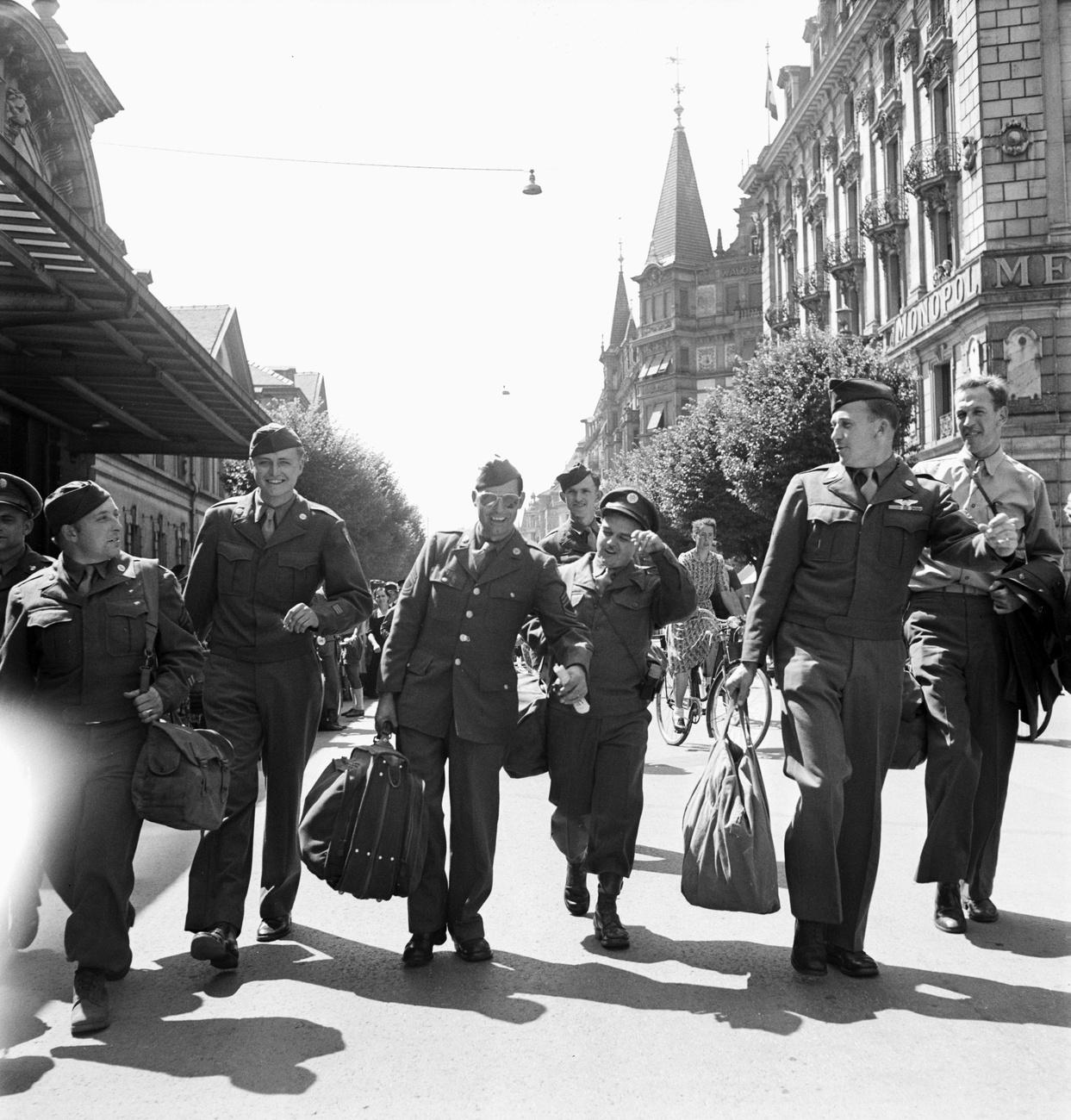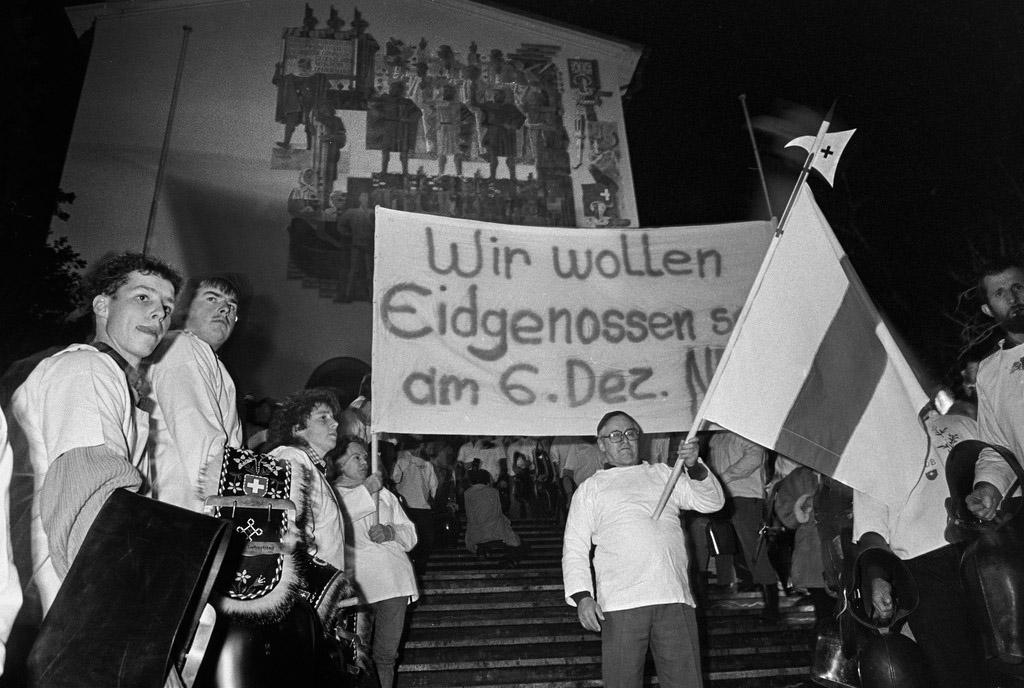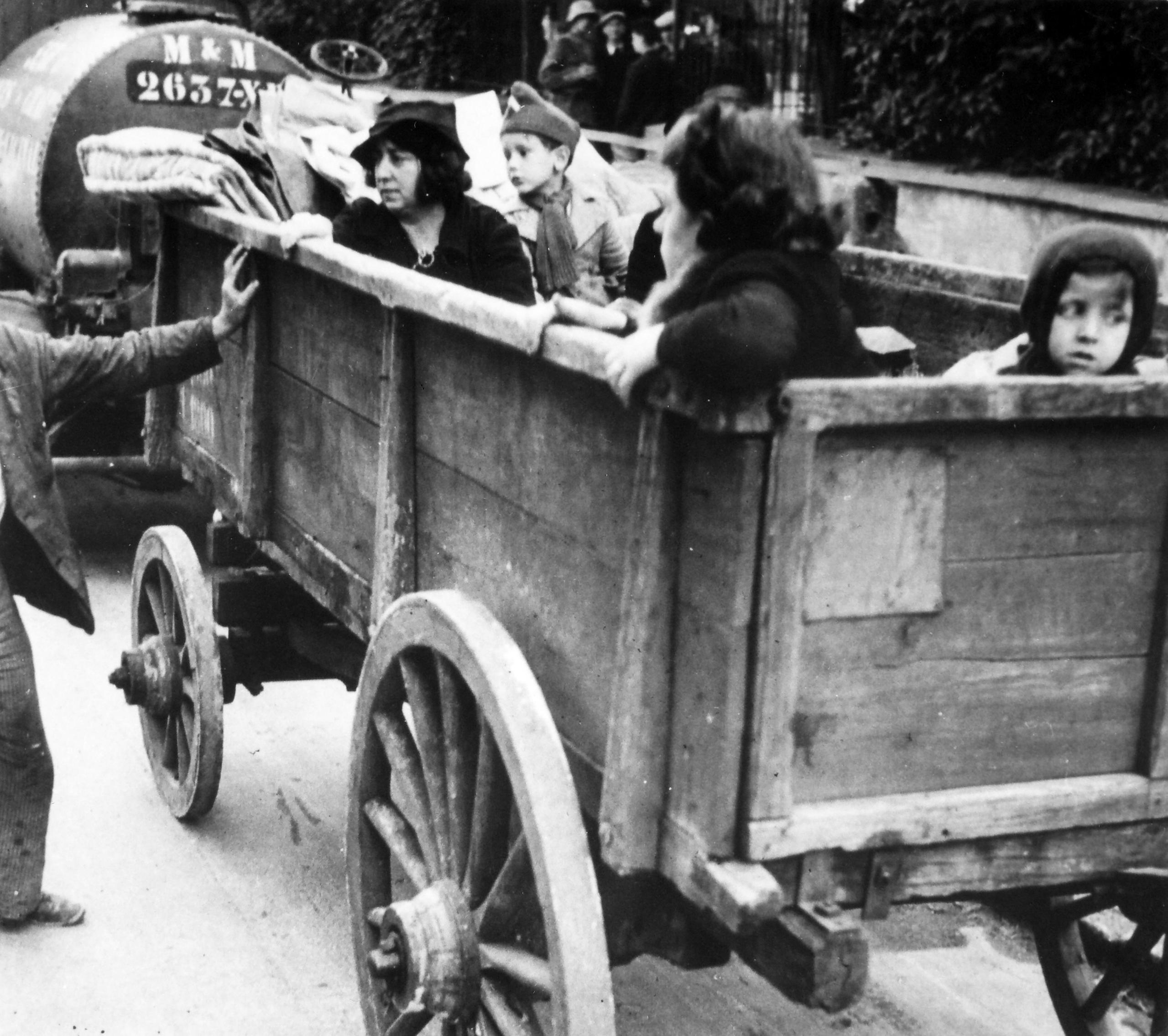
When Switzerland began distancing from Europe

When the Second World War ended 75 years ago, large parts of Europe and the world lay in ruins. Switzerland, meanwhile, was still in decent shape. Historian Jakob Tanner revisits this post-war period and its consequences for Swiss-European relations.
swissinfo.ch: In 1945, entire countries had been reduced to rubble and ash. What was the end of the war like for Switzerland?

Jakob Tanner: There was a great sense of relief, with church bells sounding everywhere. Society was in limbo, with no idea what was to come. Economically, Switzerland stood out as still having intact infrastructure, and functioning industry. At the same time, the atmosphere was polarised – since the middle of the war the labour movement had been growing, and a struggle for the future was beginning. In general, the end of the war was marked by a sense of great openness.
swissinfo.ch: What role did Switzerland play in the Second World War?
J.T.: Switzerland couldn’t remove itself completely from the European power game. The country served as a hub for business and trade, a home for gold and secret agents, a safe haven for capital and those fleeing persecution – which led to the government shutting the borders to refugees in 1942.
swissinfo.ch: Such a global and intense conflict could not just suddenly end, and today we speak of a long post-war period. What did these years have in store for Switzerland?
J.T.: In the first few years after 1945, some important courses of action were begun. Directly after, for example, women expected that their huge wartime contribution would be rewarded with voting rights. However, parliament stuck to its opinion that democracy was a male affair. And so the country remained a semi-democracy, with male military service elevated above all, and women without the vote until 1971.
swissinfo.ch: At the same time, a new international order was being built.
J.T.: Switzerland closely followed the founding of the United Nations (UN). In 1920 it had joined the League of Nations, and from 1945, as a small and neutral state, it knew it would be dependent upon a new global security architecture. However, the idea of UN membership was quickly taken off the table – though it was ready to get involved in more technocratic organisations, Switzerland wanted to stand apart politically.
swissinfo.ch: Also apart from Europe?
J.T.: Switzerland was a meeting point for various European movements after the war. But national politics was committed to going it alone. The idea was – and still is – popular that Europe needed to “Swissify” before Switzerland could Europeanise.
swissinfo.ch: Switzerland has long spoken of itself as an “exception”, and since 1945 it has developed in a unique way.
J.T.: You can find such ideas of exceptionalism in every country. In this light, there are only exceptions. Switzerland began to use this term because, in 1945, it was coming under pressure to justify itself, and the “exceptional” status allowed it to restore the image of its neutrality. The argument was well-received, especially on the domestic level.
swissinfo.ch: But Switzerland shared lots of similarities with other countries?
J.T.: Yes, for example its post-war economic ‘boom’, which was similar in every European country. The welfare state, human rights, changes in travel, consuming, and marriage habits – these were all part of a similar move towards a modern society based on consumerism and freedom. And Switzerland wasn’t only interconnected with Europe economically; hundreds of thousands of migrant workers also immigrated, enabling a period of rapid growth. And despite its neutral stance, Switzerland naturally understood itself as a part of the free West.
swissinfo.ch: Another similarity was the shared crashes, the most serious being in the 1970s.
J.T.: The collapse of the Bretton Woods economic system between 1971 and 1973 and the move to floating, rather than fixed, exchange rates laid the basis for the later introduction of the euro. At the same time, the decades-long period of economic boom came to an end, and a new form of global financial capitalism came to the fore. This had consequences for Switzerland, and fundamentally changed the structures of power. The old model of holding various positions at the same time – cultural, economic, military, political – started to erode, while economic leadership and shareholders became very internationalised.
swissinfo.ch: The end of the Cold War was another such key moment.
J.T.: Only at first glance. In fact, the internationalisation of the economy at this point was accompanied by a nationalist-mythical setback in Switzerland. In 1992 the government applied to join the European Economic Area (EEA). By the end of the year, however, right-wing resistance led by Christoph Blocher had blocked this. Since then, the image of a small, humanitarian, neutral and successful Switzerland has set it mentally apart from the EU – with consequences to the present day.
swissinfo.ch: Indeed, today many see the values and institutions created after 1945 as being under fire.
J.T.: That depends on how you diagnose the present, as well as the Covid-19 crisis. Media write continually about states of emergency and the insecurities of the Second World War. But I don’t think wartime comparisons apply, and they can provoke misguided responses. More importantly, we should recognise that after 1945 an institutional roadmap was put in place, one which proved remarkably stable. The UN and the World Health Organization, founded in 1948, still play a big role, and the idea of global governance is more current than ever.
Translated from German by Domhnall O’Sullivan, swissinfo.ch

In compliance with the JTI standards
More: SWI swissinfo.ch certified by the Journalism Trust Initiative





































You can find an overview of ongoing debates with our journalists here . Please join us!
If you want to start a conversation about a topic raised in this article or want to report factual errors, email us at english@swissinfo.ch.